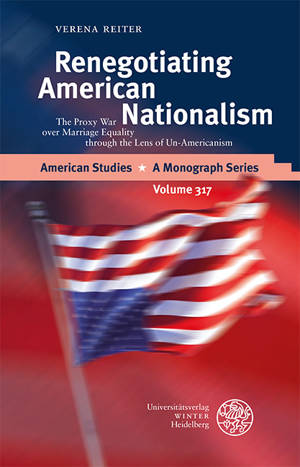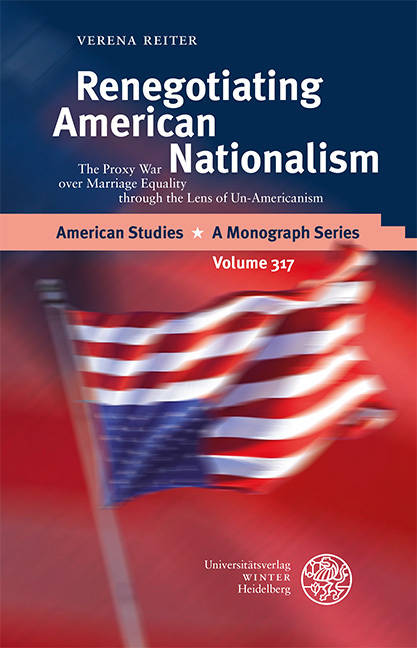
- Afhalen na 1 uur in een winkel met voorraad
- Gratis thuislevering in België vanaf € 30
- Ruim aanbod met 7 miljoen producten
- Afhalen na 1 uur in een winkel met voorraad
- Gratis thuislevering in België vanaf € 30
- Ruim aanbod met 7 miljoen producten
Zoeken
Renegotiating American Nationalism
The Proxy War Over Marriage Equality Through the Lens of Un-Americanism
Verena Reiter
€ 117,45
+ 234 punten
Omschrijving
In its landmark ruling 'Obergefell v. Hodges', the U.S. Supreme Court held that the U.S. Constitution grants same-sex couples the right to marry. This decision marked a peak of the gay and lesbian community's insistence on a full inclusion into the American nation, challenging traditional ideas of American nationalism. Operationalizing the term 'un-American' as a novel analytical tool, the book examines the many facets of American people renegotiating the legal and sociocultural equalization of gays and lesbians. The study reveals the extent to which this newly found legal equality translated into a greater equality regarding the full inclusion of gay subjects into contemporary concepts of American nationalism. It takes particular interest in disclosing that such conflicts tend to serve as proxy wars for disputes that are ultimately processes of renegotiating American nationalism. The culture war over marriage equality soon became incidental to larger sociocultural transformations.
Specificaties
Betrokkenen
- Auteur(s):
- Uitgeverij:
Inhoud
- Aantal bladzijden:
- 357
- Taal:
- Engels
- Reeks:
- Reeksnummer:
- nr. 317
Eigenschappen
- Productcode (EAN):
- 9783825348892
- Verschijningsdatum:
- 21/02/2022
- Uitvoering:
- Hardcover
- Formaat:
- Genaaid
- Afmetingen:
- 135 mm x 211 mm
- Gewicht:
- 6436 g

Alleen bij Standaard Boekhandel
+ 234 punten op je klantenkaart van Standaard Boekhandel
Beoordelingen
We publiceren alleen reviews die voldoen aan de voorwaarden voor reviews. Bekijk onze voorwaarden voor reviews.











